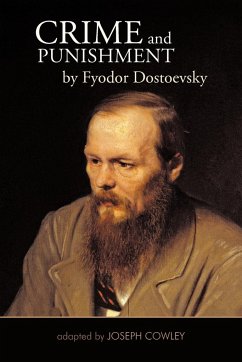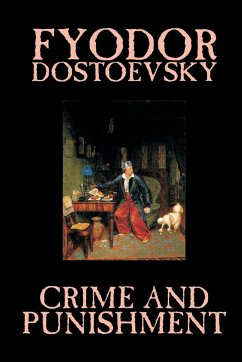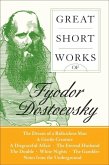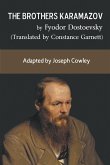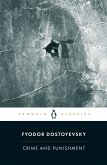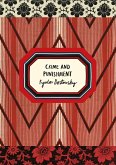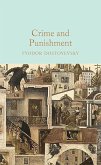Dostoevsky was the son of a doctor. His parents were hard-working, religious people but poor. His first work, "Poor Folk," was published by the poet Nekrassov, and he found himself an instant celebrity. A brilliant career seemed opened to him, but in 1849 he was arrested and condemned to death. A member of a group of young men who met to read Fourier and Proudhon, he was accused of "taking part in conversations against the censorship... and of knowing of the intention to use a printing press." After eight months' in jail, he was taken to the Semyonovsky Square to be shot. Suddenly the troops beat a tattoo; they were unbound, and informed that his Majesty had spared their lives. The sentence was commuted to hard labor -- four years of penal servitude in Siberia, where he began "Dead House," and some years in a disciplinary battalion. In 1864 he lost first wife and his brother Mihail. He was in terrible poverty, yet he took upon himself the payment of his brother's debts. Weighed down by debt, he wrote at heart-breaking speed, and is said never to have corrected his work. The later years of his life were much softened by the tenderness and devotion of his second wife. In June 1880 he made his famous speech at the unveiling of the monument to Pushkin in Moscow and was received with demonstrations of love and honor. A few months later he died. He was followed to the grave by a vast multitude of mourners. He is still probably the most widely read writer in Russia. In the words of a Russian critic, "He was one of ourselves, a man of our blood and our bone, but one who has suffered and has seen so much more deeply than we have his insight impresses us as wisdom... that wisdom of the heart which we seek that we may learn from it how to live."
Hinweis: Dieser Artikel kann nur an eine deutsche Lieferadresse ausgeliefert werden.
Hinweis: Dieser Artikel kann nur an eine deutsche Lieferadresse ausgeliefert werden.

